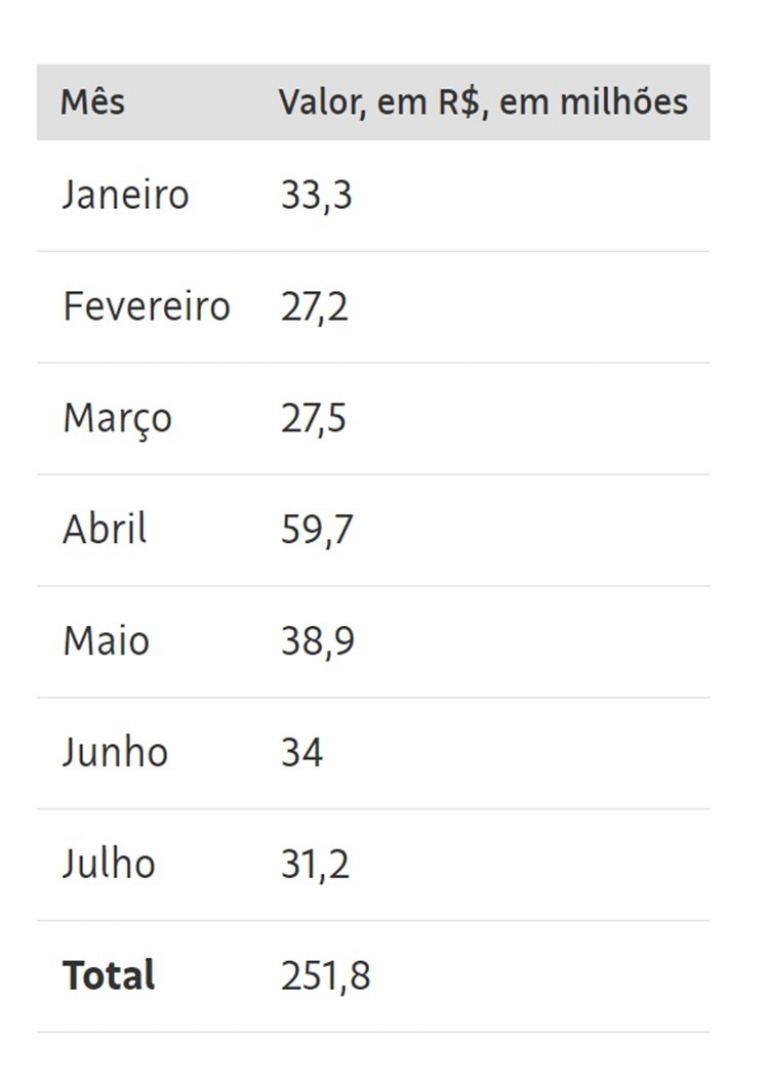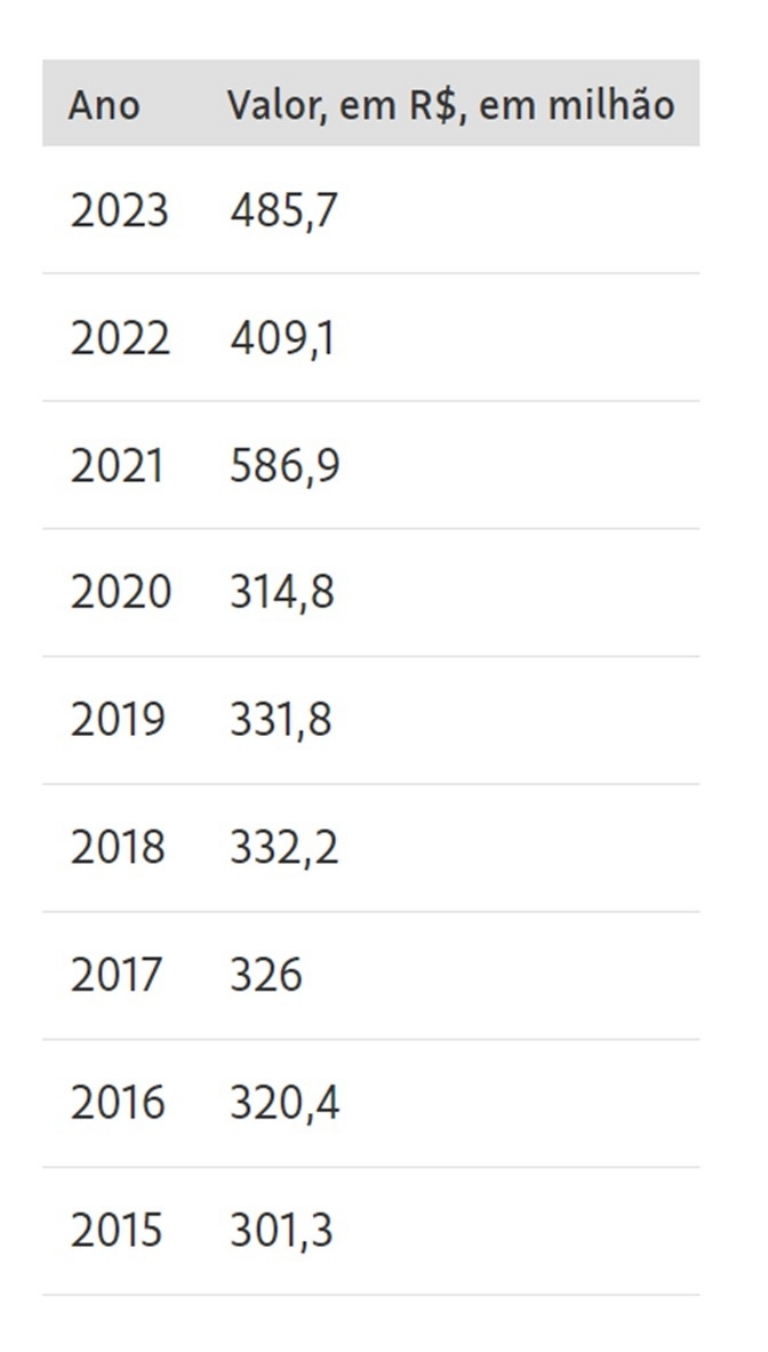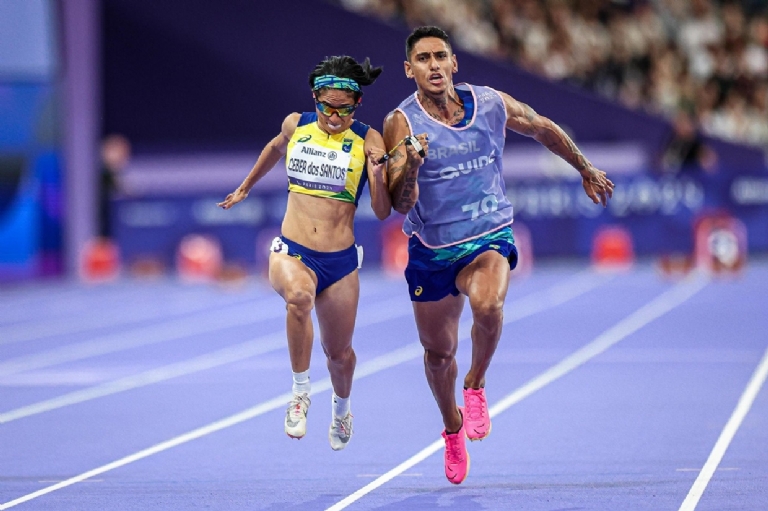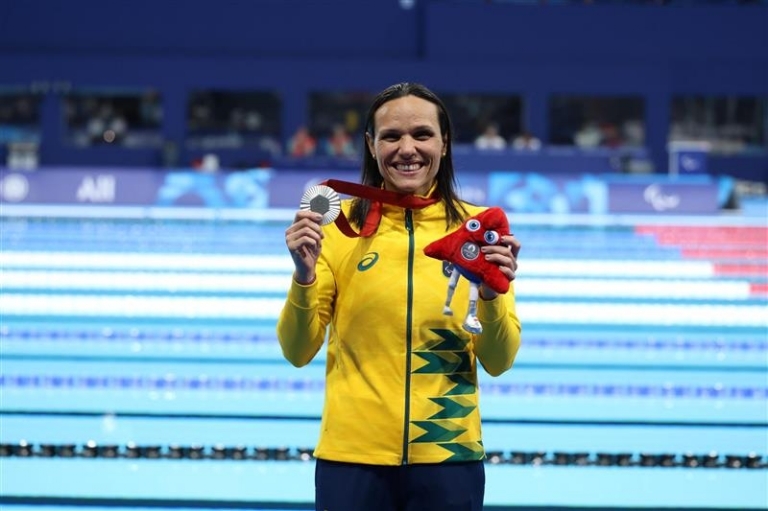Sportradar, a global leader in sports technology, held an Integrity Workshop with the professional male team of Palmeiras this Thursday (5) at the team's Training Center in Barra Funda, São Paulo. The initiative is part of the company's commitment to educate and prevent manipulation practices in sports, using advanced tools and detailed analysis to ensure the ethics of competitions.
The goal of the event was to sensitize and educate players and technical staff about the threat of result manipulation in soccer.
During the workshop, athletes participated in interactive activities and learned about real situations that highlight the risks and circumstances involved in result manipulation and the dangers of professional athletes getting involved with sports betting. Sportradar shared detailed information based on its performance in monitoring, detecting, and investigating manipulation cases in sports competitions around the world.
Felippe Marchetti, integrity partnerships manager of Sportradar in Brazil, stated: “The fight against result manipulation is an ongoing effort that requires the awareness of everyone involved in sports”.
“Our goal is to equip players with the necessary knowledge to recognize and report any suspicious approaches and for Sportradar, it is an honor to promote this seminar to Palmeiras, one of the most traditional and successful clubs in the country”, he added.
“We thank them for opening their doors and collaborating in building a safe environment for our soccer”, concluded Marchetti.
This workshop is part of a series of ongoing actions that Sportradar promotes around the world to protect the integrity of sports. In Brazil, several federations and clubs have already received the training, including the Northeastern Federations, Minas Gerais Football Federation, Náutico, Sport, and Vitória.
The Integrity Education and Prevention programs are part of their anti-result manipulation services.
Source: GMB
Bettors who won prizes in the lotteries of Caixa Econômica Federal left behind R$ 251.8 million in 2024, according to bank data. The amount includes traditional games such as Mega-Sena and other bets, and takes into account all prize tiers. The unclaimed money within the legal deadline is directed to Fies (Student Financing).
By law, the winner has up to 90 days after the draw to withdraw the money. It is necessary to present proof that the bet belongs to him, in addition to an identification document, such as the CPF.
April was the month in which bettors left behind the largest amount. In total, R$ 59.7 million was not withdrawn. In May, the second largest month without prize withdrawals, R$ 38.9 million was left behind.

How much was forgotten in Caixa's lotteries prizes in 2024
Whose responsibility is it to claim the prize?
According to law 13.756/2018, it is exclusively the bettor's responsibility to request the receipt of lottery prizes within 90 days after the draw.
According to article 34, "bettors lose the right to receive their prizes or to request refunds if the payment is not claimed within 90 (ninety) days, counted from the date of the first announcement of the result of the last real event object of the bet".
There is no receipt recorded by the bank at the lottery outlets or in the bets made online that proves the identity of the bettor, therefore, Caixa cannot locate who won. It is necessary to prove that the bet was made and bring an identification document to withdraw the amounts.
What are the rules for claiming lottery prizes?
The bettor who wins any amount in the lottery can receive his prize at any accredited lottery house or at Caixa branches. If the gross amount – without tax deduction – is more than R$ 2,259.20, the payment can only be made at Caixa branches, with the presentation of an identity proof, such as CPF, and the original winning bet receipt.
Amounts equal to or above R$ 10,000 are paid within a minimum period of two business days from the presentation of the documents at the bank.
Prizes from bets made on the lottery portal or the app whose net value, already discounted taxes, is R$ 1,581.44 (and gross of R$ 2,259.20), can be received at any Caixa branch or lottery house and also by transfer to Mercado Pago.
If the option is to receive at a lottery house, it is necessary to present the printed bet receipt, which has a barcode, in addition to presenting also a memory with the redemption code (of six numbers). This numbering is generated on the Loterias Caixa Portal, and has a validity of up to 24 hours.
Another option to receive is to generate a QR Code for each winning bet, accessing the Loterias Caixa Portal with a cell phone or tablet. The QR Code is valid for 60 minutes and can be read by any lottery house. There is no need for printing the receipt when receiving by QR Code.
In the case of the Mega-Sena prize whose bet was made online, the redemption can only be carried out at Caixa branches, regardless of the value, by the bettor or his attorney. It is necessary to present documents and the ticket.
 How much did Brazilians forget in lotteries in recent years?
How much did Brazilians forget in lotteries in recent years?
How to bet on Mega-Sena and other games?
Bets on Mega-Sena can be made until 7 pm on the day of the draw at lottery houses across the country, on the Loterias Caixa portal, and on the lottery app, as well as on internet banking for those who have an account at the bank. A simple bet costs R$ 5.
It is also possible to place bets at lottery houses. The same rules apply to other Caixa lotteries.
The probability of hitting a six-number bet on Mega-Sena is one in more than 50 million. In a seven-number bet (which costs R$ 35), the chance rises to one in 7.1 million.
It is possible to bet up to R$ 30 on the lottery website and app. Those with an account can bet up to R$ 500.
Source: Folha
With the support of CAIXA Lotteries, Brazil finished the Paris Paralympic Games with the best campaign in its history. The Brazilian delegation broke Paralympic, world, podium, and gold medal records, with two more on the last day of competition. With this, it reached the Top-5 for the first time.
Brazil finished in fifth place in the medal table with a total of 89 podiums. This was the goal set by the Brazilian Paralympic Committee (CPB) in 2016, in Rio de Janeiro, but it was not achieved. In the strategic planning made in 2017, and reviewed in 2021, the goal was set between 70 and 90 medals and the top-8 in golds, which was achieved and even surpassed in Paris.
“In every Brazilian, today, pulses a Paralympic heart, so, I want to thank immensely the effort, the games were extensive. Such extraordinary results provided by our athletes here”, said Mizael Conrado, two-time Paralympic champion as a blind soccer player (Athens 2004 and Beijing 2008) and president of the Brazilian Paralympic Committee (CPB).
“The result of the Paralympic Games was exceptional, but we cannot talk about this result without going back to 2017, when we elaborated our strategic plan and that was a compass throughout the last eight years, it guided us here”.
“Brazil made me very proud here in Paris. A campaign with 89 medals, 25 gold, 26 silver, 38 bronze. A campaign that could have been even better. Just remember that we lost two races by two hundredths. I can't even imagine how much two hundredths is. So, it's really an impeccable campaign, the largest number of medals in total, the largest in gold, total number of medals, from 72 to 89, our goal was from 75 to 90", said Mizael.
The historic campaign included some aspects that were remarkable in Paris 2024:
Top-5 for the first time
For the first time in history, Brazil ended among the top five of the Paralympic Games in the medal table.
There were 25 golds, which places the country behind only China (94), United Kingdom (49), United States (36), and Netherlands (27).
In the total number of podiums, only three countries won more than Brazil, which had 89: China (220), Great Britain (124), and United States (105).
Record of medals in one edition
Brazil ends its participation in the French capital with 89 podiums: 25 golds, 26 silvers, and 38 bronzes. This is the best campaign of Brazil in the history of the Paralympic Games surpassing by 17 podiums the 72 obtained in Tokyo 2020 and Rio 2016.
In Paris, the Brazilian delegation reached the 400th medal and ended with 462 podiums, paving the way for the 500th medal to arrive already in 2028, in Los Angeles. Athletics reached the mark of 200 medals in history and swimming, 150 podiums.
Record of golds
Brazil surpassed the number of gold medals won in a single edition, with 25 in total. The previous record, 22, was registered in Tokyo 2020. The sum of podiums of the country in Paralympic Games now is 462, being 134 golds, 158 silvers, and 170 bronzes.
Record of medals in one day
On the penultimate day of competition, Brazil had its most victorious day in the history of the Paralympic Games. The country won 16 medals only on Saturday, September 7: six gold, three silver, and seven bronze.
During the period in Paris, Brazil won at least ten medals on five days of the Games, on 8/30, 10/31, 9/2, 9/3, and 9/7.
Record of participants abroad
The Brazilian delegation had 280 athletes participating in the Paralympic Games of Paris. The Brazilian Paralympic Committee called up 255 athletes with disabilities, and also traveled to France 19 guide athletes (18 from athletics and 1 from triathlon), three boccia assistants, two goalkeepers from blind soccer, and one coxswain from rowing.
Before, the largest national team was a total of 259 called up in Tokyo 2020. The record of participants of the country was in the Games of Rio 2016, occasion in which Brazil was host and had 278 athletes with disabilities.
Record of female participation
In Paris, of the 255 athletes with disabilities called up, 117 were women, or 45.88% of the total competitors, which represents the historical record.
The number represents the largest Brazilian female call-up in the history of the Paralympic Games both in quantity and in percentage terms. In numbers, the athletes who will be in the French capital will surpass the quantity called up in the 2016 edition, in Rio de Janeiro, when Brazil had 102 women, which represented 35.17% of the total delegation.
Brazilian women won 43 medals in Paris, with 13 gold, 12 silver, and 18 bronze, fourth best in the medal table, behind China, United Kingdom, and United States.
World records
The Brazilians broke six world records, five in athletics and one in swimming.
In athletics, with the South-Mato Grosso Yeltsin Jacques in the 1500m T11, who made the time of 3min55s82, with the Paulista Júlio César Agripino dos Santos, who made 14min48s85 in the 5000m T11, with the Acrean Jerusa Geber, who made 100m T11 with the time of 11s80, with the Maranhense Rayane Soares da Silva, who made the 400m T13 in 53s55, and with the Paulista Beth Gomes, who marked 7.82m in the shot put F53.
In swimming, the world record came with the Minas Gerais Gabrielzinho, who made the 150m medley SM2 in 3m14s02.
Paralympic records
Brazil also broke eight Paralympic records in Paris, three in athletics, one in canoeing, two in weightlifting, and two in swimming.
In athletics, the Minas Gerais Claudiney Batista dos Santos made 46.86m in the discus throw class F56 to beat the new Paralympic record. The Paulista Beth Gomes made 17.37m in the discus throw F53. And the Acrean Jerusa Geber dos Santos made the 200m T11 in 24s51.
In canoeing, the South-Mato Grosso Fernando Rufino made the 200m VL2 in 50s47. In weightlifting, the Paulista Mariana D'Andrea lifted 148kg in the category up to 73kg. The Carioca Tayana Medeiros lifted 156kg in the category up to 86kg.
In swimming, the Carioca Lídia Vieira da Cruz made the 50m free S4 in 38s61. The Pernambucana Carol Santiago made the 50m free S12 in 26s71.
Unprecedented medals
Brazil expanded the diversity of medals with three modalities that had never reached the podium.
In badminton, the Paranaense Vitor Tavares won the bronze in the single class SH6. In shooting sports, the Paulista Alexandre Galgani won the silver in the R5 air rifle 10m, lying mixed position SH2. And in triathlon, the Paranaense Ronan Cordeiro won the silver in the PTS5 class.
Brazilian top gold medalist
The swimmer from Pernambuco Carol Santiago won three gold medals in Paris and became the woman with the most golds in the history of Brazil. She now has six golds, the previous record was four by Ádria Santos. In total, Carol Santiago has 10 podiums.
Gabrielzinho: three golds and the double championship
The Minas Gerais Gabriel Araújo, Gabrielzinho, won three gold medals in Paris, and became a double Paralympic champion in two events.
He won the 200m freestyle and the 50m backstroke, events in which he was also a gold medalist in Tokyo 2020. The third victory, still on the first day of competitions in Paris, came in the 100m backstroke, an event in which the Minas Gerais had been silver in the previous edition of the mega event.
Greatest support in the history of world paralympic sports
Since 2003, CAIXA Lotteries have supported national paralympic sports. In these 21 years of partnership with the Brazilian Paralympic Committee (CPB), more than R$ 355 million have been invested. Since then, the country has become a paralympic power. Brazil jumped from 24th place in 2000 to 7th place in 2021, after winning 72 medals in the last games, held in Tokyo, Japan.
In 2023, CAIXA Lotteries renewed the sponsorship with the CPB and the partnership continues with investments of R$ 35 million. The current contract allows the maintenance of the 67 Reference Centers spread across the country and the service of more than 3.5 million athletes, between sports initiation and high performance.
The bank's support is the longest sponsorship to a national committee in the history of paralympic sports.
CAIXA Lotter










